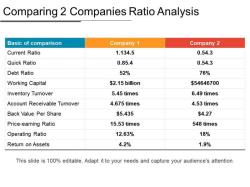Are bonds better than savings?
Bonds and savings accounts are two different financial investment options that offer varying levels of risk, return, and liquidity. Each option has its own characteristics and considerations. Let's explore the differences between bonds and savings:
Bonds:
Definition: Bonds are debt securities issued by governments, municipalities, or corporations to raise capital. When you invest in a bond, you are essentially lending money to the issuer in exchange for periodic interest payments and the return of the principal amount at maturity.
Risk and Return: Bonds are generally considered lower-risk investments compared to stocks. The risk level varies depending on the issuer's creditworthiness. Government bonds, especially those issued by stable governments, are typically considered low-risk. Corporate bonds may carry higher risk depending on the issuer's financial health.
Income Generation: Bonds provide a regular stream of interest income, which is often fixed. The interest rate, known as the coupon rate, is determined at the time of issuance.
Liquidity: Bonds can be bought and sold in the secondary market, providing liquidity for investors. However, the market for certain bonds may be less liquid, affecting the ease of selling.
Maturity: Bonds have specific maturity dates when the principal is returned to the investor. Short-term bonds have lower maturity periods, while long-term bonds have longer periods.
Price Fluctuations: Bond prices can fluctuate in the secondary market based on changes in interest rates. When rates rise, existing bonds with lower coupon rates may become less attractive, potentially leading to a decrease in their market value.
Savings:
Savings Accounts: Savings accounts are deposit accounts offered by banks and financial institutions. They provide a safe place to store funds while earning interest.
Risk and Return: Savings accounts are considered very low-risk investments. The Federal Deposit Insurance Corporation (FDIC) in the United States insures deposits in savings accounts up to a certain limit.
Income Generation: Savings accounts offer interest income, but the rates are typically lower than what can be earned through other investment options.
Liquidity: Savings accounts offer high liquidity. Funds can be easily accessed through withdrawals or transfers, making them suitable for emergency funds.
Accessibility: Savings accounts are readily accessible and can be managed online or through mobile banking.
Inflation Risk: The interest earned on savings accounts may not keep up with inflation, leading to a decrease in purchasing power over time.
Choosing Between Bonds and Savings:
The choice between bonds and savings depends on your financial goals, risk tolerance, and investment horizon:
Choose Bonds If:
- You are looking for potentially higher returns than savings accounts.
- You are comfortable with a moderate level of risk based on the issuer's creditworthiness.
- You are seeking regular interest income.
Choose Savings If:
- You prioritize safety and liquidity.
- You need a place to keep emergency funds.
- You want easy access to your money without worrying about market fluctuations.
It's important to diversify your investment portfolio based on your individual circumstances and goals. Consulting with a financial advisor can help you make informed decisions and create a balanced investment strategy that aligns with your financial objectives.













